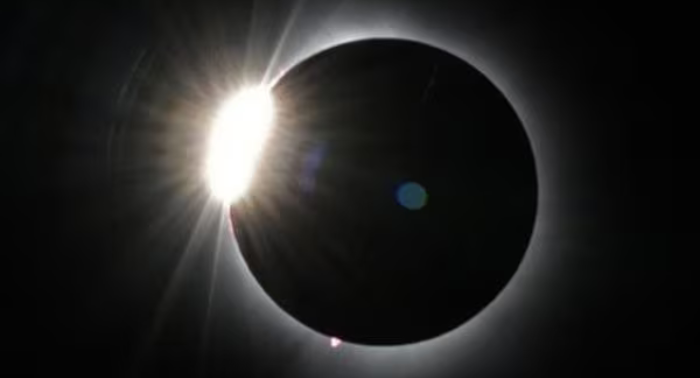If you missed witnessing the total solar eclipse on Monday due to weather conditions or your location, don’t worry—there are more opportunities to experience this awe-inspiring phenomenon in the future.
Here’s what you need to know about upcoming solar events:
Total solar eclipses occur approximately every year or two, resulting from a precise alignment of the sun, moon, and Earth. These phenomena can take place anywhere around the world, often in remote regions such as the South Pacific.
Mark your calendars: The next complete solar eclipse is scheduled for 2026, passing over the northern regions of Greenland, Iceland, and Spain.
In 2033, the next total solar eclipse visible from the United States will occur, brushing past Alaska and Russia. Then, in 2044, another eclipse will traverse Greenland and western Canada, touching parts of North Dakota and Montana.
A solar eclipse of the magnitude witnessed on Monday won’t reoccur until August 12, 2045.
According to Mary Urquhart, a planetary scientist at the University of Texas at Dallas, the 2045 eclipse will be particularly spectacular, spanning coast to coast. It will begin in Northern California, cut through Utah, Colorado, and Mississippi, and culminate at Cape Canaveral, Florida.
You can repurpose eclipse glasses to observe sunspots—large, dark spots on the sun’s surface caused by tangled magnetic fields.
Additionally, a partial lunar eclipse is expected in September, visible across Europe, Asia, Africa, North America, and South America.
Throughout 2024, several meteor showers and supermoons will illuminate the skies, as they do annually.
For space enthusiasts seeking more immersive experiences, local planetariums and science centers offer educational opportunities. For instance, the planetarium at Ball State University in Muncie, Indiana, will extend its operating hours after the eclipse weekend, hosting themed shows and guided sunset meditations.
Director Dayna Thompson expressed enthusiasm, anticipating that visitors would return eager to learn more about celestial phenomena.




